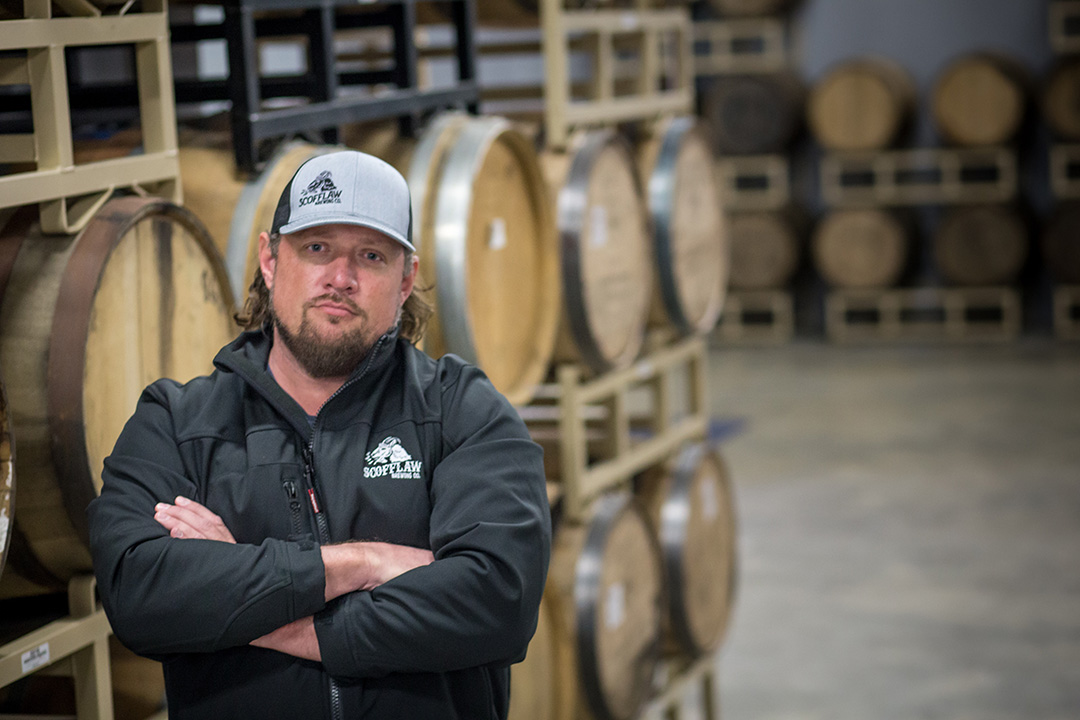
This is a part of a continuing series of Q&As with members of the brewing community from across the U.S.
Brewer Magazine will share business and personal insights from Brewmasters, Head Brewers, Brewing Managers, Sales Directors, QCQA Managers and others each weekend to help you get to know each other better in the industry and learn more to better develop your own brand.
Matthew Shirah, CEO, Scofflaw Brewing — Atlanta
BREWER: How do you feel your job has had to adapt in the beer market compared to a few years ago?
SHIRAH: My job has not changed. My vision and strategy remain the same. I make beers that appeal to more of the population, everyday beer drinkers included. And I make beer for the consumer, not for me. Our product portfolio has remained consistent, with only minor changes here and there, formula adjustments, usually associated with ingredient variances and new suppliers. What has changed is the landscape and how other breweries have responded to increasing market turbulence. SKU dilution causes consumer confusion and spreads the same amount of revenue over more brands than ever. For years craft breweries have been able to take advantage of price elasticity. Now, in response to the challenging market conditions some breweries feel pressured to constantly generate new brands (this group includes some extremely experienced leaders and industry veterans). Others chase fads and end up fundamentally changing their business by not stayed true to their vision. This creates a whole host of issues. Often times this leads to making similar beers with different names or product mimicking. Retailers still seem willing to leave the shelves stacked with aging beer rather than focusing on products with velocity.
BREWER: Who is your mentor in the industry and why? What have you learned from them?
SHIRAH: Rob Tod has always been my lighthouse. In my opinion, he has been one of the most successful visionaries in this history of craft brewing. I saw him at the CBC two years ago and was so star struck I could not speak to him. His approach to customer service and branding has been something that I have studied closely. Not to mention, he has one of the cleanest facilities I have ever seen, which I greatly appreciate. Travis and I started our business one customer at a time. We continue to add customers one at a time, winning people over by taking the time to touch every potential customer.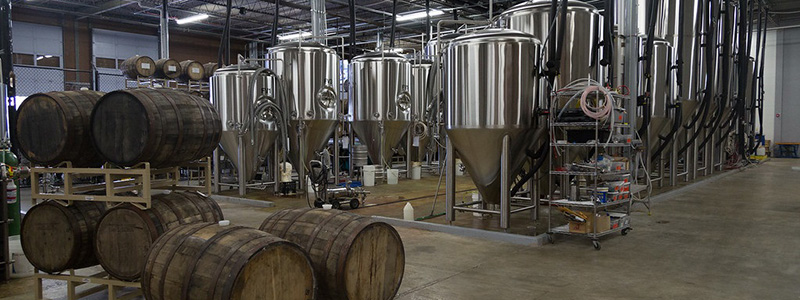
BREWER: Can you share a success story that you are proud of in your job or maybe a story of how you learned from a situation that has altered your thoughts on how you do your job now?
SHIRAH: Our team focuses on our core products with a few R&D beers here and there. We continue to purchase sophisticated resources for the Scofflaw laboratory. Additionally, I was prepared early on for the unavoidable challenges, cost containment and a constant eye on performance improvement. Bench-marking is not a new concept, but many operators do not have the experience required to correct inefficiencies, many of which are easy to take advantage of. Inefficiencies are easier to mask, and maybe less important in a small neighborhood shop. In mid-size to larger breweries, cracks will continue to appear as the craft beer market, now really just the “beer” market, continues to trend flatter and flatter while more and more breweries come on line. I have seen financials for manufacturers (they asked me to have a look) that reveal a fundamental problem, the more you sell, the more you lose. This can be fixed.
BREWER: Can you touch on something your brewery has added lately that’s unique or making your business more successful (it could be equipment, technology or people)?
SHIRAH: In addition to laboratory equipment, we have added lots of equipment to increase efficiencies and productivity without sacrificing quality. Breweries face remarkably thin margins and cash flow strain when growing, especially when they cannot self distribute. This is clear in markets like North Carolina, where breweries will just stop producing at a certain level rather than increase production only to see cash flow evaporate.
BREWER: If you had one business strategy that you could implement to better the brewing industry, what would it be?
SHIRAH: Rapid growth causes cash positions to remain weak and while others make many times more money on products than the actual manufacturers. Production breweries struggle to keep up with capital expenditure requirements and other sales related costs. For this reason, we will see more consolidation, shared services and financial partnering over the next several years. Larger breweries can offer additional capacity, but it comes at a great cost. Essentially, if you are growing quickly, you may have to choose between profitability and market penetration. Adding to the enormous number of SKUs, you end up competing for tap handles inside your own house and home markets. Even more stressful, even the best distributors find themselves in a strange new position. They house brands that are growing or strong, but the brands that are in decline begin to consume more of the distributor’s time and resources. In some cases, distributors feel pressured to focus on these declining brands rather than focus on maximizing growing brands with more potential upside. The only solution is to bite the bullet, clean up the dead beer in the market, and face the fact that focusing on lower quality brands heavily outweighs the headline risk associated with cutting brands loose (or letting them fight for themselves with limited self distribution). My current efforts? They are centered around finding the right partners in both existing and new markets. I will look to grow in markets close to home, especially where the legislation will allow us to create more value for our employees and our investors. In turn, this allows us to strengthen our value proposition create more value for our retailers and end users. The key to success is disruption. Stay close to home and build relationships with partners that add value to your business while you reciprocate.
Photos by Robert Speir and Samantha Taylor



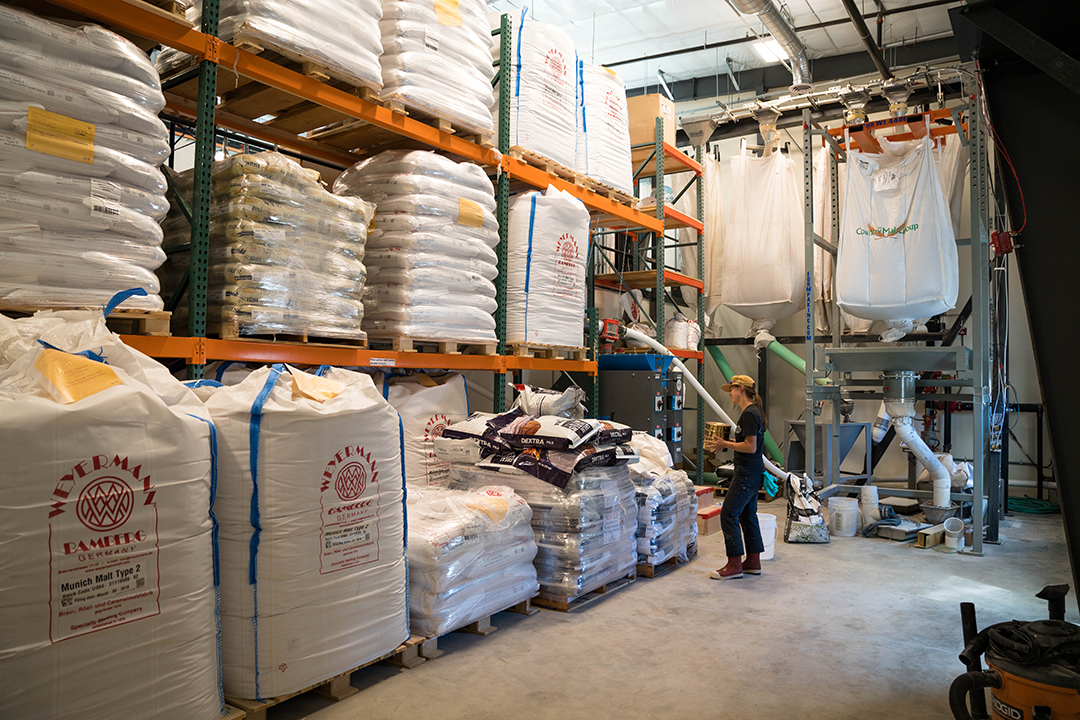
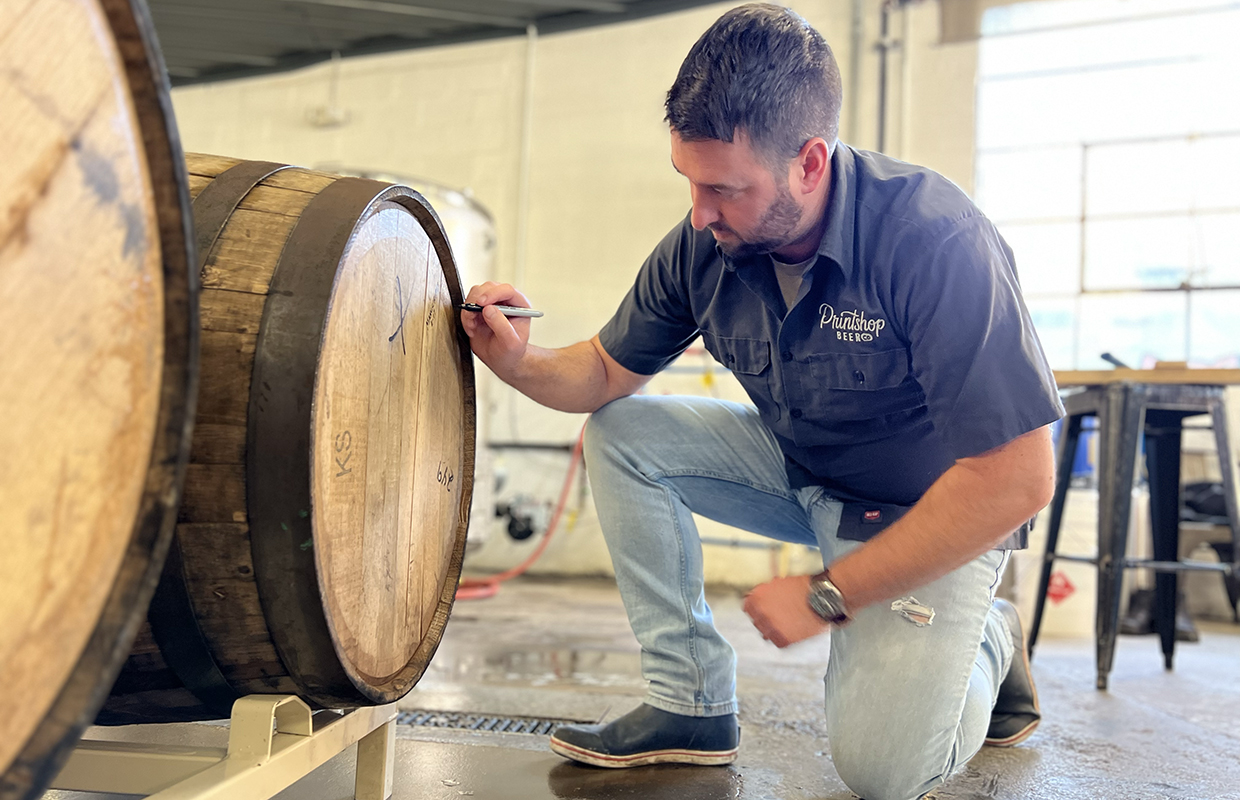
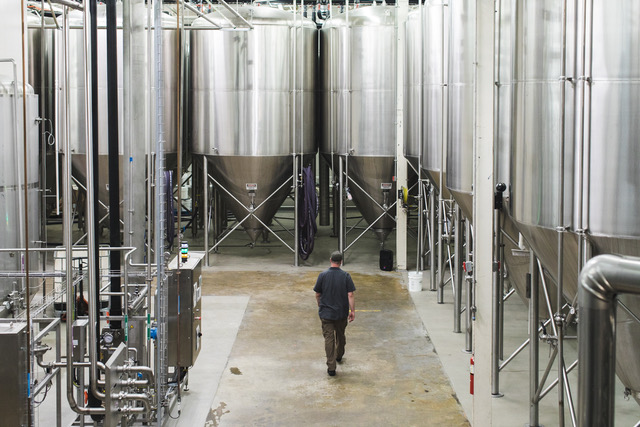
Be the first to comment